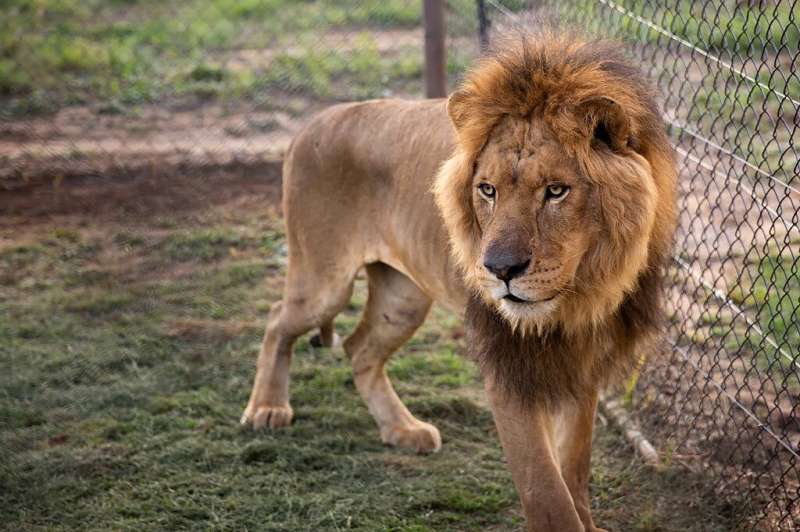Four held for lion body part trafficking in S.Africa

South African police have arrested four people for allegedly trying to sell lion paws, just days after eight mutilated lion carcasses were discovered at a private game farm.
The four were arrested on Monday in South Africa's northern city of Rustenberg, around 60 kilometres (37 miles) from Swartruggens, where the carcasses were found over the weekend.
"The suspects... were allegedly looking for a buyer for four lion paws that were in their possession," police said in a statement on Tuesday.
They were suspected of trying to sell the paws to an "undercover agent" for 300,000 rand (US$21,000; 19,000 euros).
The motives for the lion killings remain unclear. Some speculate that previous killings in South Africa have been for the big cats' body parts, which are used in so-called traditional medicine.
Police spokeswoman Tlangelani Rikhotso said it was too early to tell whether the paws had been taken from the Swartruggens carcasses.
"In due course we will be able to say whether the two cases are linked or not," she told AFP.
Lions are classified as a "vulnerable" species by the International Union for Conservation of Nature (IUCN).
Their population dropped 43 percent between 1993 and 2014, with only around 20,000 alive today.
© 2020 AFP


















